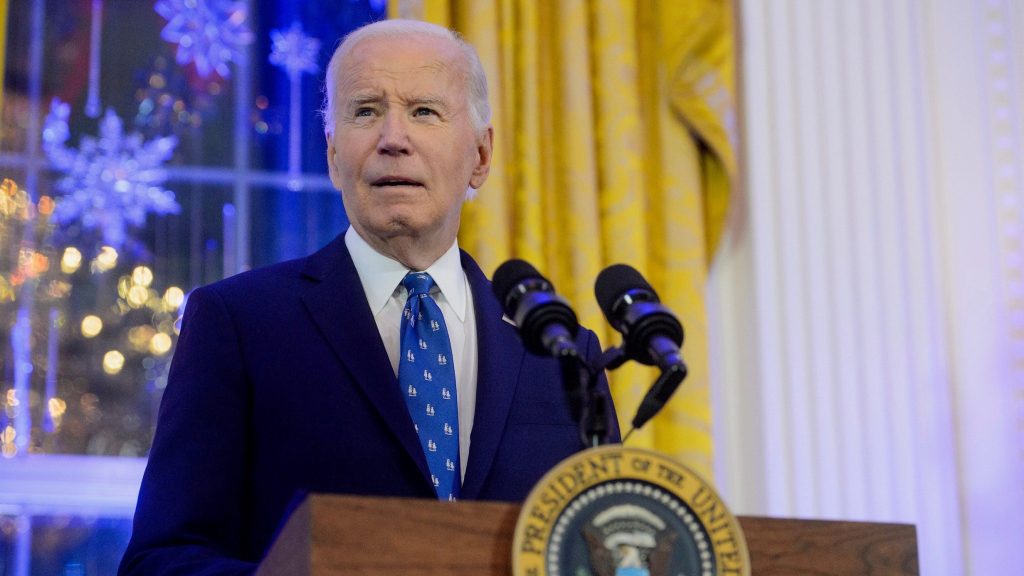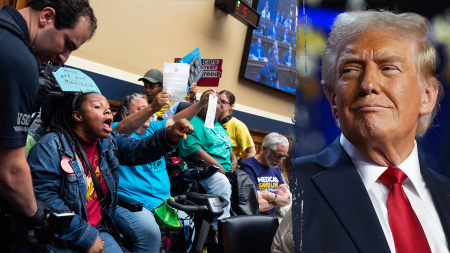President Biden signed a stopgap funding bill, the “American Relief Act, 2025” (H.R. 10545), into law on Saturday, averting a looming government shutdown and extending federal funding until March 14, 2025. The bill’s passage followed a turbulent week on Capitol Hill, culminating in a late-night Senate vote of 85-11 just past the deadline. This crucial legislation ensures the continued operation of federal agencies and provides critical financial support for disaster relief and agricultural assistance. The bill’s passage underscored the importance of bipartisan cooperation in preventing a government shutdown that could have had far-reaching consequences, particularly for those affected by recent natural disasters and struggling farmers.
A key element of the “American Relief Act, 2025” is the allocation of over $100 billion in disaster aid to communities impacted by Hurricanes Helene and Milton, which ravaged the southeastern United States earlier this year. These funds will be vital for recovery efforts, including infrastructure repairs, housing assistance, and support for affected individuals and businesses. The bill also includes a $10 billion provision for economic assistance to farmers grappling with various challenges, including market fluctuations and extreme weather events. This agricultural aid aims to stabilize the agricultural sector and support the livelihoods of farmers across the country.
Beyond the immediate funding provisions, the legislation extends the Agriculture Improvement Act of 2018 and several other expiring authorities. The extension of the Agriculture Improvement Act ensures the continuation of various agricultural programs and policies crucial for the stability and sustainability of the agricultural sector. The extension of expiring authorities maintains regulatory frameworks and programs across various government departments and agencies, preventing disruptions to their operations.
The legislative process leading to the bill’s passage was marked by intense negotiations and last-minute maneuvering. An initial, more extensive continuing resolution (CR) encountered roadblocks due to objections from figures like Elon Musk and President-elect Trump. A subsequent, slimmed-down version of the bill also faced rejection in the House. Ultimately, a revised bill, spearheaded by House Speaker Mike Johnson, gained overwhelming bipartisan support in the House with a vote of 366 to 34, paving the way for its passage in the Senate and President Biden’s signature. This intricate process highlighted the complex political dynamics surrounding government funding and the imperative to bridge partisan divides to ensure the continued functioning of the government.
While the passage of the bill averted a government shutdown, some concerns remained, particularly regarding the absence of a provision to suspend the debt ceiling. President-elect Trump expressed dissatisfaction with this omission, emphasizing the importance of addressing the burgeoning national debt, which has surpassed $36 trillion. Conservative Republicans shared these concerns, raising concerns about the fiscal implications of raising the debt limit without concomitant measures to address spending levels. This ongoing tension over the debt ceiling foreshadows potential future legislative battles over fiscal policy.
The White House emphasized the importance of preventing a shutdown, particularly due to its potential impact on the incoming administration’s presidential transition process. White House Press Secretary Karine Jean-Pierre had warned that a shutdown could disrupt the intricate logistical and administrative preparations for the transfer of power, potentially jeopardizing the smooth transition to the next presidential administration. Senate Majority Leader Chuck Schumer lauded the bipartisan effort that led to the bill’s passage, underscoring its significance in maintaining government operations and providing vital assistance to disaster-stricken areas and the agricultural sector. The passage of the “American Relief Act, 2025” demonstrates the critical role of compromise and collaboration in navigating complex policy challenges and ensuring the continued functioning of government.










